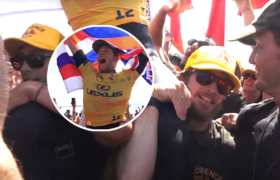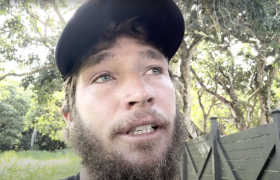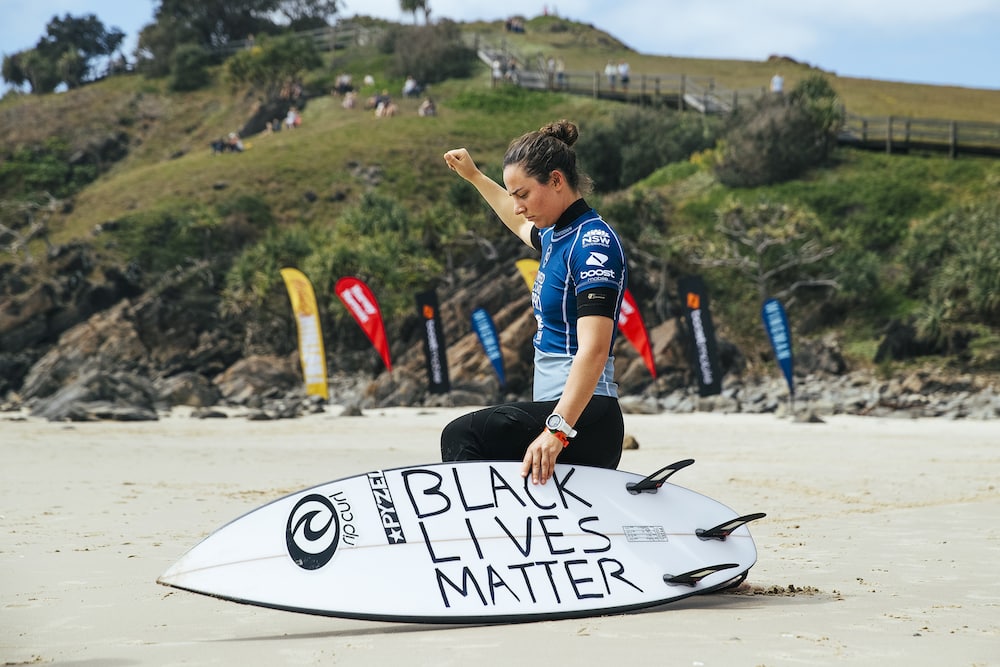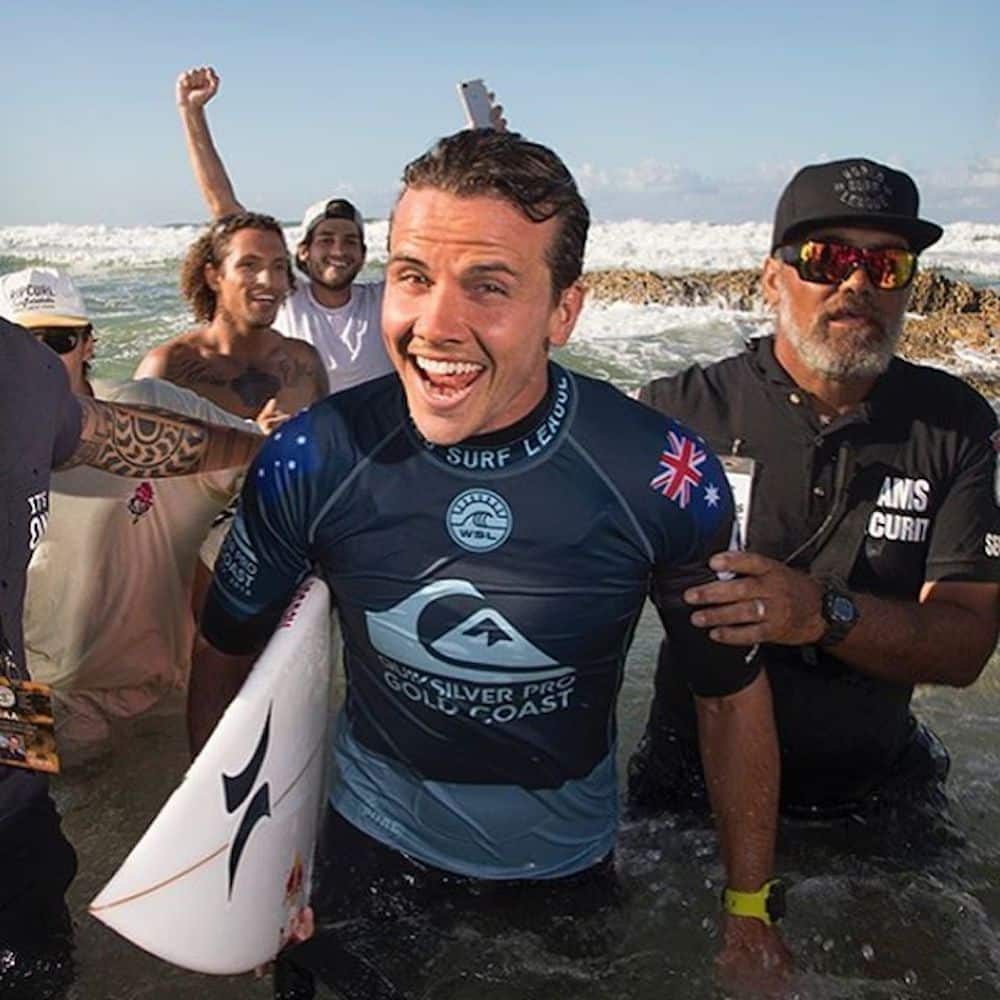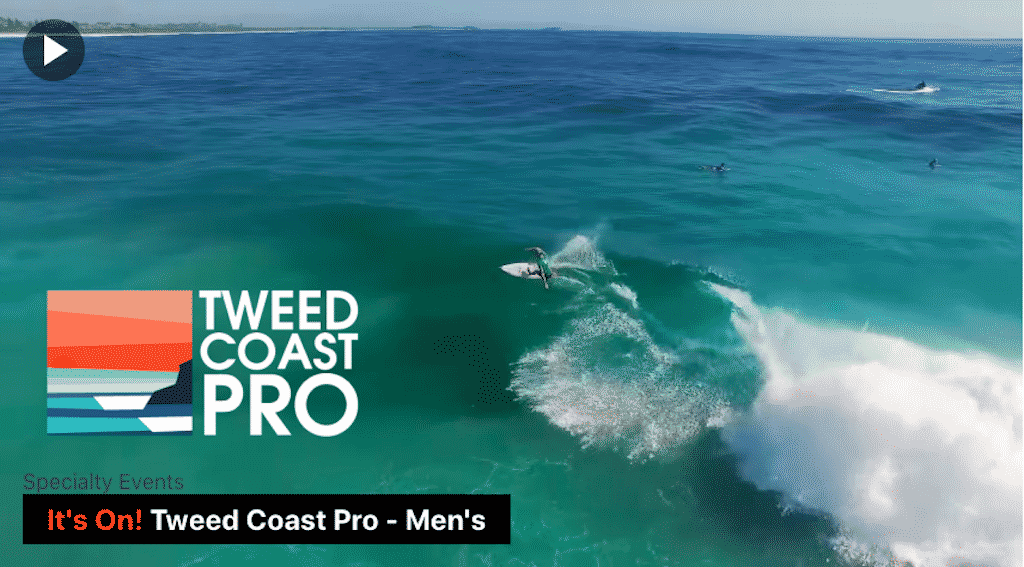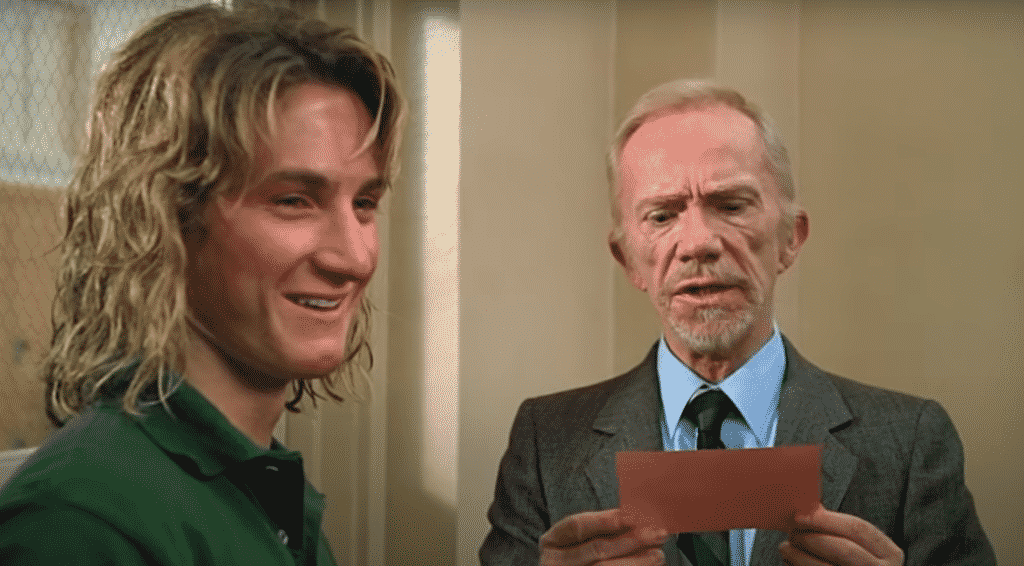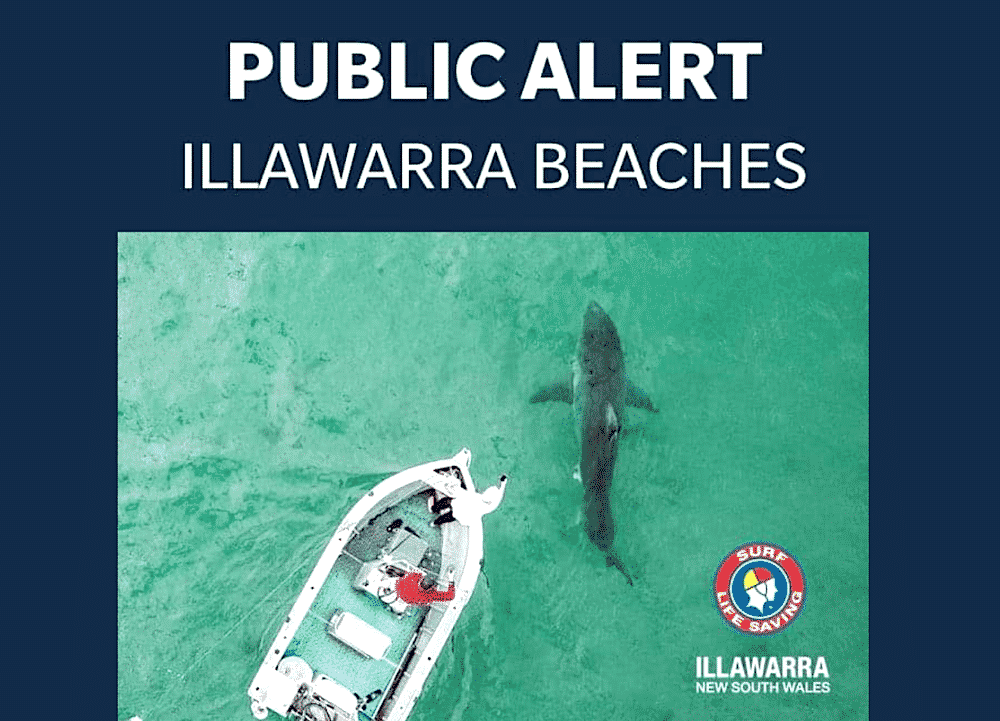A vexing issue…
In case y’didn’t tune into the Tweed contest, the two-time world champion Tyler Wright dropped a knee for four hundred and thirty-nine seconds in solitary with Black Lives Matter, the number representing “one second for every First Nations person in Australia who has lost their life in police custody since 1991.”
The response on the WSL’s twitter feed has been, mostly, negative.
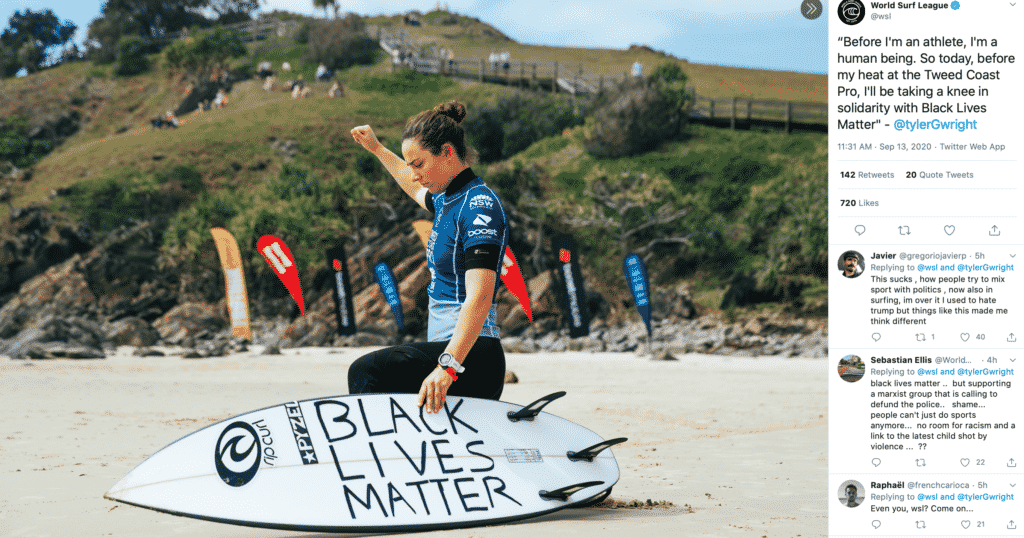
Do you support Marxism?
Perpetuating a complete falsehood…sad…uneducated surfer does not even understand that the BLM organization is an extreme racist, Marxist, anti-family radical group, using violence and extortion to get their lie out. If she stands with them, so be it.
What about the rest of the ethnicities that have been persecuted. BLM isn’t about black lives it’s about riots and funneling $ to Act Blue. How about Polynesians Lives Matter. or Latin Lives Matter. Don’t drink the Kool-aid WSL.
And, so on.
A few fans fired back.
Hahaha. The amount of racists in the comments.
Comment section definitely didn’t pass the vibe check. An athlete isn’t just an athlete, they are an individual Soul. Using their platform to speak on what they believe.
Tyler correctly raised the issue of black deaths in custody, something that’s been in the public consciousness in Australia since a royal commission was called in 1987 after a horror run of indigenous Australians dying while in police custody.
The result wasn’t quite so clear cut.
The four-year long Royal Commission into Aboriginal Deaths in Custody “did not find higher rates of death of Aboriginal people compared to non-Aboriginal people.”
And, now, “Overall, the rate of Indigenous deaths in custody has reduced since 1991, as of June 2020 lower than the rate of death of non-Indigenous people.”
Of 2608 total deaths in police custody between 1979 and 2018, roughly five hundred of ‘em were indigenous.
Deaths in police custody doesn’t just mean getting hell beaten out of you by psycho pigs. It includes natural causes, driving yourself into a tree in a police pursuit, suicide etc.
A vexed issue, of course.
Indigenous Australians are overrepresented in prisons (so are short, bald men and transgender hotties, according to an ex-con pal) and subject to the attention of over-zealous cops.
Below, the relevant passage.
We talk a little about the opening scene in Charlie’s Country, the interaction with the cop Luke. I tell Gulpilil it gets me every time. The laughs, the pathos, the summation of black-and-white relations in Australia wrapped in a minute of dialogue.
“I’ll say something for the cops up north. They’re very lazy,” says Mary. “In the community, aren’t they David. They’re lazy. I know more about what’s going on illegally in the community than the bloody cops that live there. Yeah. They’re just lazy.”
What sort of lazy, I ask. I’ve never met a cop who didn’t balk at taking a report or define new standards of slowness when swinging on over to the scene of a crime.
“Going fishing, don’t they, David.”
“Yeah,” he says weakly.
Mary asks Gulpilil permission to tell a story about when he first came to Murray Bridge. They arrived home one day to a note on the door asking Gulpilil to report to the police station immediately.
Mary rang ‘em and the cops told her it was “something to do with the bank.”
Three days later, when they eventually got around to interviewing their suspect, the cops explained that an “Aborigine man” had grabbed a woman’s credit card from her while she was standing in line in the bank and had fled to the nearby bottle shop where he used it to buy booze and cigarettes.
“They showed us a photo and no way was it David,” says Mary.
“No way it was me,” says Gulpilil.
“Blind Freddie could’ve seen it was a desert man,” says Mary, who explained to the authorities that the distance between bank and bottle shop was too far for an invalid like Gulpilil, who has to crouch over a walking stick to make it from TV room to kitchen, to cover.
“But they said, ‘Someone said it looks like David.”
Mary fumes.
“Well, it wasn’t.”
These sort of accusations aren’t new to Gulpilil. He’s felt it his entire life.
His own regent’s uncle, Prince Edward VIII, who famously abdicated the British crown to marry the divorced American Wallis Simpson, wrote in 1920,
“They showed us some of the native Aborigines at a wayside station in the great plain yesterday afternoon, though they are the most revolting form of living creatures I’ve ever seen” and “the nearest thing to monkeys I’ve ever seen.”
Still, in the enlightened year of 2018, surely a black man can enjoy freedom of movement without molestation from authorities.
Mary looks serious.
“Want me to tell Derek about the night we got pulled over?”
“Yes, yes. Please.”
“We got pulled over one night, driving. It was about half past eleven, twelve o’clock at night, coming home, and they tried to get me to use a breathalyser and… I can’t… I have never been able to do it. Most cops are really good about it and then one of ‘em points at David, who’s asleep, and says, ‘Is he alive?’”
Mary told ‘em he was and shoved Gulpilil in the ribs, telling him to wake up.
“Is he drunk?” said the cop.
Mary explained that he didn’t drink.
“He looks drunk to me,” said the cop.
“And then they’re carrying on about this breathalyser that I should be able to do. They worked it out that I couldn’t physically do it after ten minutes. I was ready to faint. Then they asked for a licence. Not mine. David’s. They took it, went back to the car, checked it and…nothing. I was almost asleep at the steering wheel. Next minute, I heard the licence smash down on the dashboard, they told me we could go and they shot off like a bat out of hell.”
Mary darkens at the memory.
“And that same guy was telling us the week before that his friend was working up in Ramingining. ‘Oh he has a wonderful time,’ he said. He goes…fishing!”
Mary says she didn’t complain about being hassled ‘cause why bother when karma is going to spin its wheel and, besides, Gulpilil didn’t want any more trouble.

